
Businesses are struggling to manage fragmented AI tools, rising costs, and strict compliance requirements. AI management platforms offer a solution by centralizing oversight, cutting costs by up to 98%, and boosting productivity tenfold. This article reviews five platforms - Prompts.ai, UiPath, ServiceNow, Automation Anywhere, and Relevance AI - each addressing unique aspects of AI governance.
| Platform | Strengths | Considerations | Best For |
|---|---|---|---|
| Prompts.ai | 35+ models, cost tracking, compliance | None noted | Diverse model use, cost control |
| UiPath | Strong automation tools | Limited AI governance | Automation-focused businesses |
| ServiceNow | IT workflow integration | Narrow AI focus | IT-heavy enterprises |
| Automation Anywhere | Quick automation deployment | Lacks specialized AI tools | Rapid automation needs |
| Relevance AI | Workflow creation | Limited public info on governance | Direct evaluations needed |
Choose the platform that aligns with your organization's AI needs, whether it's managing costs, ensuring compliance, or streamlining operations.
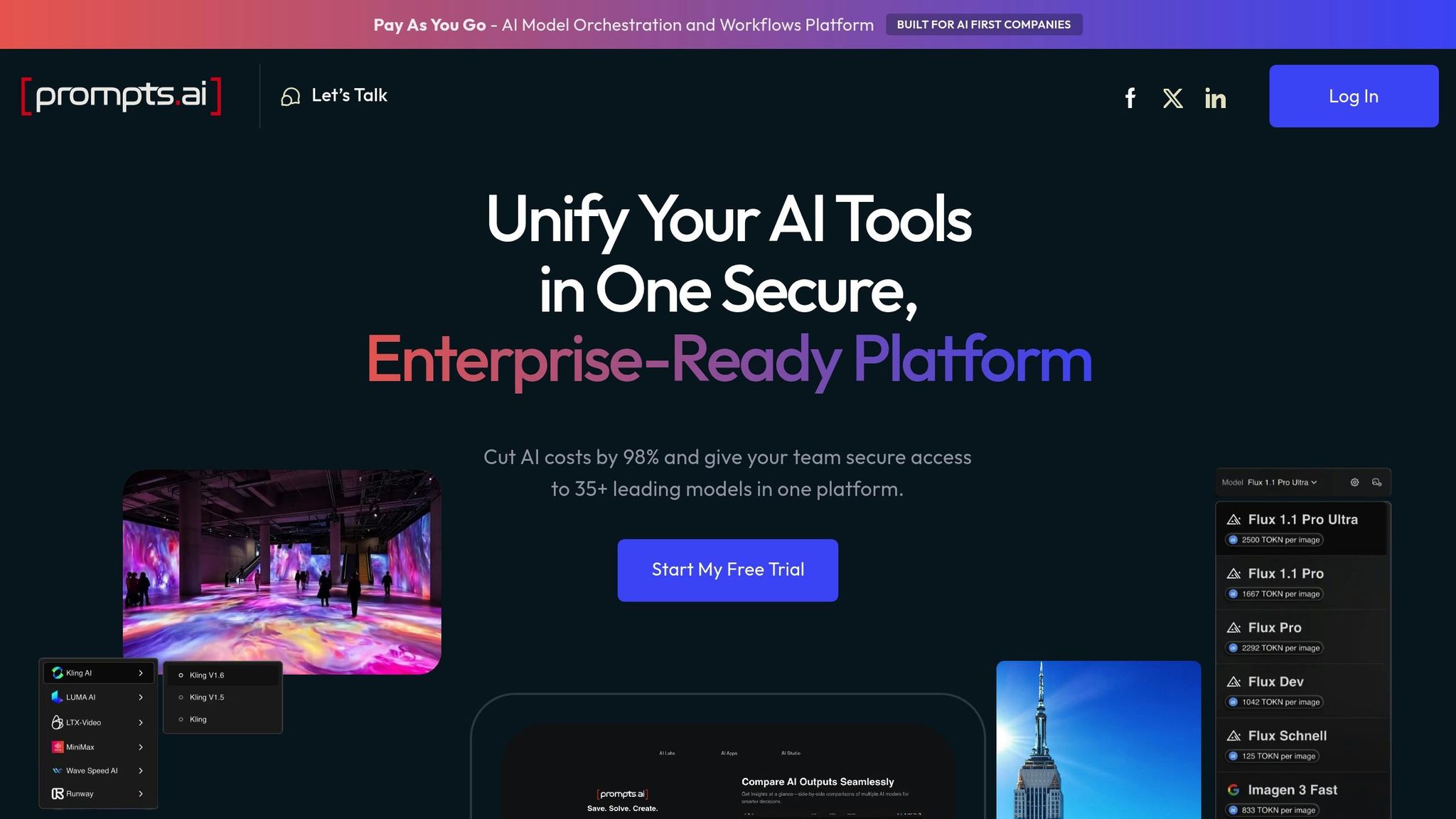
Prompts.ai is an AI orchestration platform designed to tackle a common challenge for U.S. businesses: managing scattered and disconnected tools across departments. By bringing together over 35 leading large language models - such as GPT-4, Claude, LLaMA, and Gemini - into one secure, centralized interface, Prompts.ai eliminates the inefficiencies of tool sprawl while upholding enterprise-grade security and compliance.
Prompts.ai goes beyond simply aggregating models; it integrates seamlessly with tools businesses already rely on, like Slack, Gmail, and Trello. This allows companies to automate tasks and create scalable workflows without disrupting existing processes. By consolidating more than 35 disparate AI tools into one unified platform, Prompts.ai simplifies operations and reduces repetitive work.
The platform’s AI-powered integrations are ready to deploy in seconds, making it easier for teams to automate tasks across departments while maintaining their current tech stack. Whether you choose the Core, Pro, or Elite plan, interoperable workflows are included, ensuring centralized AI oversight and smooth integration with your existing systems. This approach also supports strict governance and compliance measures, giving organizations full control over their AI ecosystem.
Prompts.ai prioritizes governance and compliance by adhering to frameworks like SOC 2 Type II, HIPAA, and GDPR, ensuring data is protected at every level. The platform offers complete visibility and auditability of AI interactions, addressing concerns about unmonitored AI usage within organizations.
The company began its SOC 2 Type 2 audit process on June 19, 2025, and maintains continuous monitoring through a partnership with Vanta. Users can access real-time updates on security, policies, and compliance via the Prompts.ai Trust Center at trust.prompts.ai.
Governance and compliance tools are available across all plans, from the free Pay-as-you-go option to the $129 Elite business plan. This ensures that even smaller organizations can maintain rigorous standards without incurring extra costs. In addition to securing data, Prompts.ai provides tools to help businesses manage AI spending effectively.
One of the platform’s standout features is its focus on cost transparency and control. Prompts.ai offers detailed analytics on prompt usage, model calls, and expenses, enabling businesses to track spending by department, project, or individual user. Tools like budgeting features, usage alerts, and resource allocation recommendations make financial oversight straightforward.
The pay-as-you-go TOKN credit system eliminates recurring fees, aligning costs directly with usage. This approach provides the financial clarity and predictability that finance teams need, ensuring AI investments remain manageable and efficient.
As businesses grow and their AI needs expand, Prompts.ai’s cloud-native architecture ensures seamless scalability. The platform is built to handle increasing volumes of prompts, users, and integrated models without compromising performance. Whether supporting a small creative team or a Fortune 500 company, Prompts.ai adapts to meet organizational needs.
With features like multi-tenant management and role-based access controls, the platform accommodates complex structures and evolving requirements. Adding new models, users, or workflows takes just minutes, eliminating the typical headaches that come with scaling AI operations.
Prompts.ai provides real-time dashboards and customizable reports to give organizations full visibility into AI workflows. Metrics like prompt success rates, error tracking, and user activity are easily accessible, enabling teams to identify issues quickly and make informed decisions to improve processes.
These reporting tools support both day-to-day operations and long-term strategic planning. By identifying trends, optimizing workflows, and demonstrating compliance, businesses can ensure their AI systems run smoothly and effectively. Automated alerts flag unusual activity or performance issues, helping maintain the reliability and consistency that enterprises depend on.
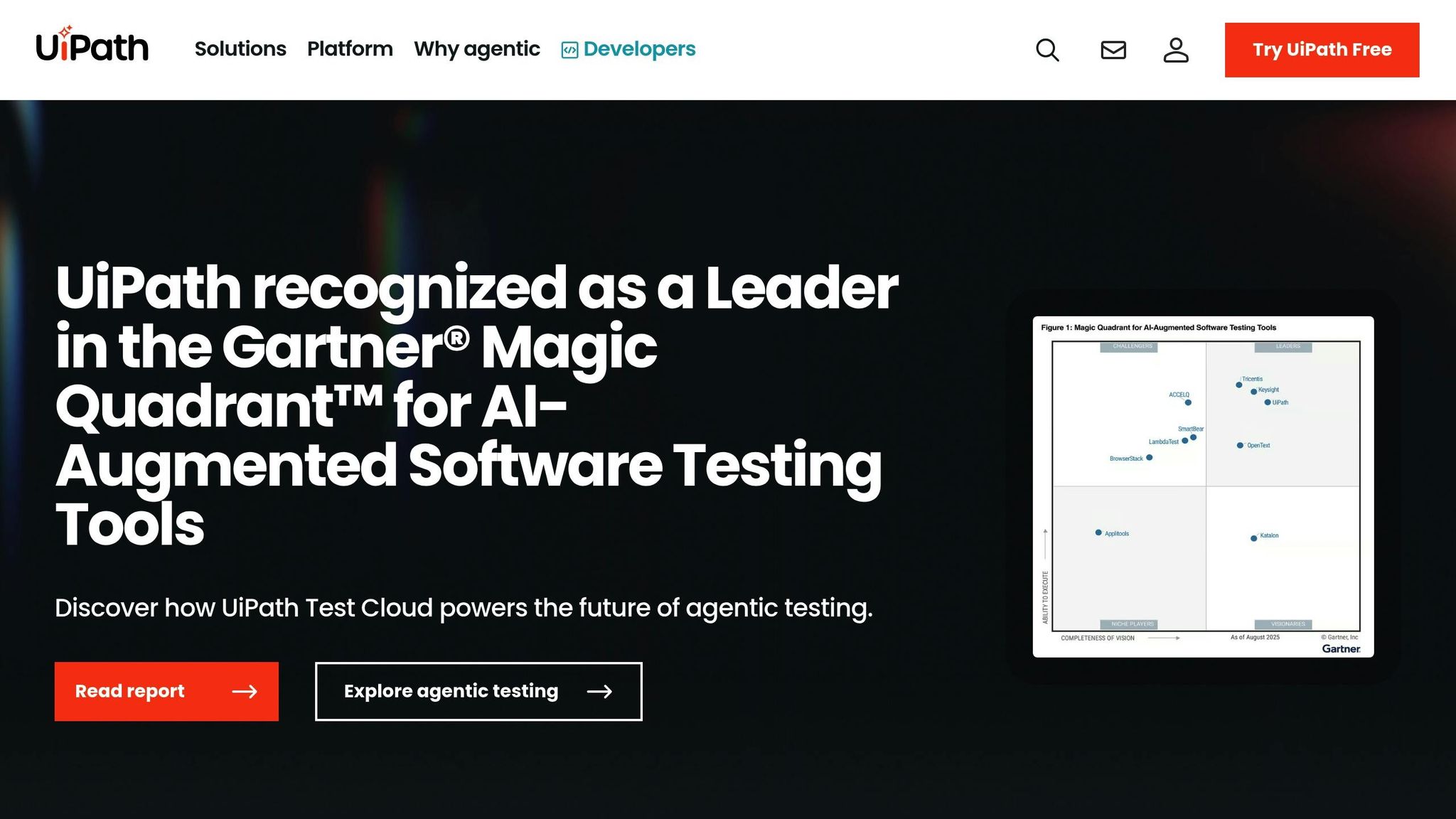
Prompts.ai provides clear and detailed AI governance solutions, but UiPath's documentation falls short when it comes to specifics about AI oversight. This contrast highlights the varying strategies companies take in addressing AI management. UiPath is well-known for its automation tools, but there’s little to no information available about its AI management capabilities. Key aspects like integration, governance, scalability, and monitoring of AI-driven processes are notably absent from the available data.
While organizations often turn to UiPath for its automation expertise, its role in AI management remains ambiguous. This lack of clarity leaves questions about how it handles AI within its automation framework. Up next, we’ll take a closer look at ServiceNow and its approach to managing AI.
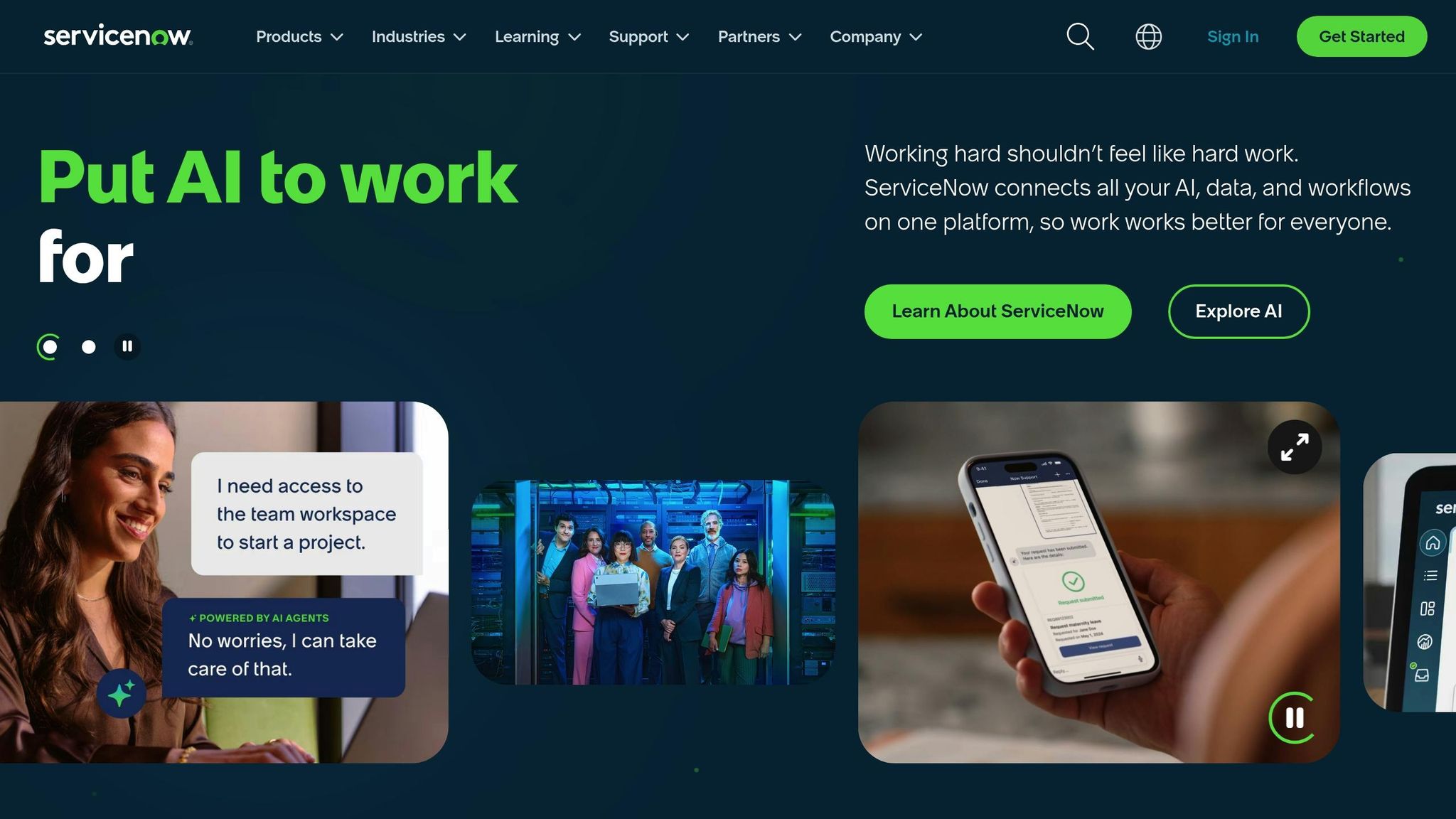
ServiceNow's AI Control Tower simplifies AI management by embedding oversight directly into existing workflows. This approach underscores the importance of managing AI operations seamlessly across platforms.
The AI Control Tower acts as a central hub for coordinating strategy, governance, management, and performance in enterprise AI. It combines AI monitoring with IT service management, governance, risk, and compliance (GRC) tools, and ticketing systems. Additionally, it tracks autonomous agents and ensures audit trails align with regulatory standards. Notably, AI Magazine has ranked the ServiceNow AI Control Tower among the "Top 10: AI Governance Platforms".
ServiceNow is designed to work alongside other monitoring and management tools. For instance, LogicMonitor's LM Envision platform integrates with ServiceNow, syncing enriched incident context. This compatibility allows organizations to streamline AI management while continuing to use familiar workflows.
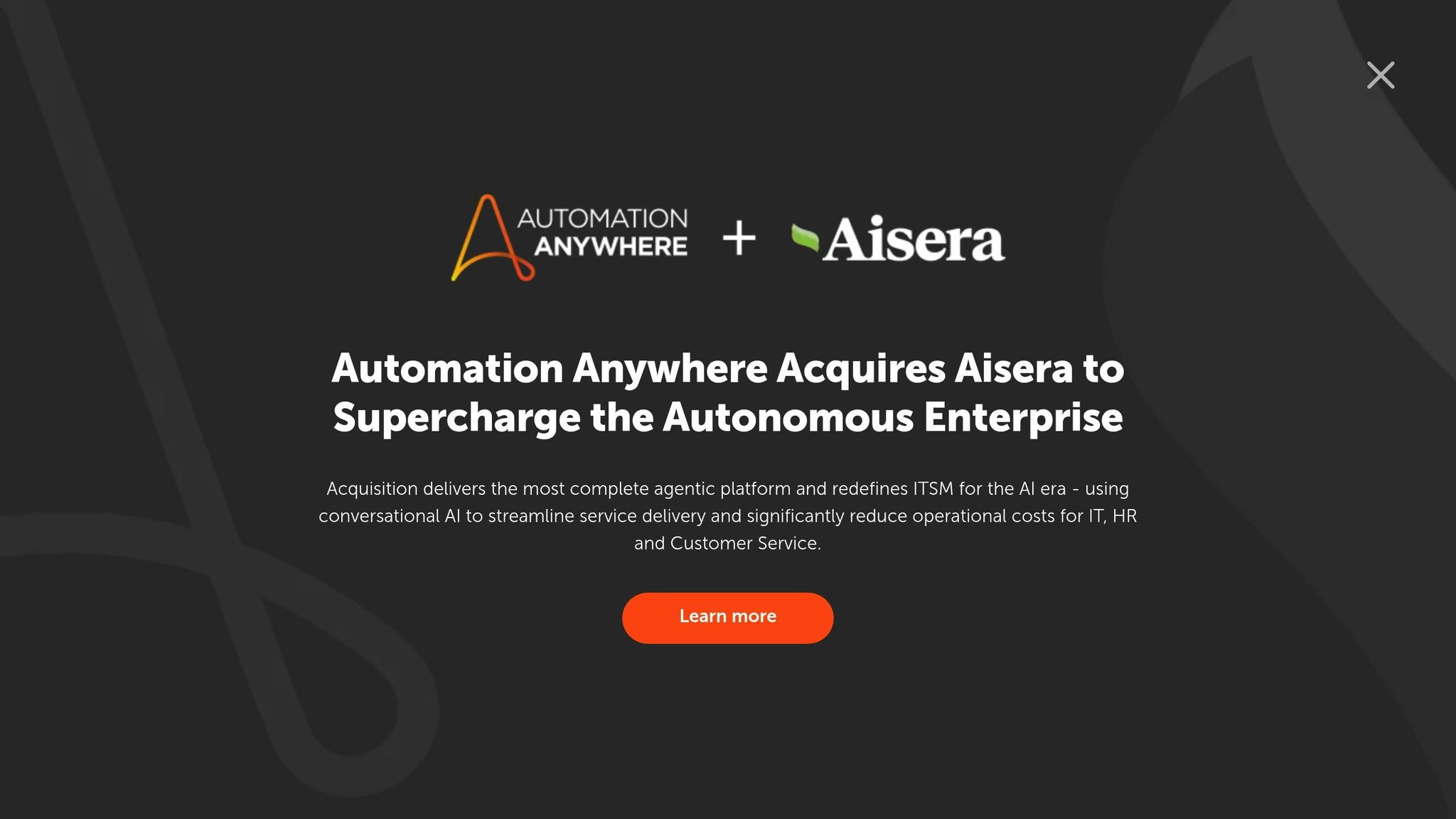
Automation Anywhere is a prominent name in robotic process automation (RPA), designed to help businesses simplify and automate repetitive tasks. Its strong RPA framework efficiently handles routine operations, but there’s limited publicly available information about its AI monitoring and optimization features. While organizations can take advantage of its proven approach to automation, those requiring detailed AI oversight will need to reach out to the vendor for further insights. This creates a noticeable difference compared to platforms that provide more extensive AI management capabilities.
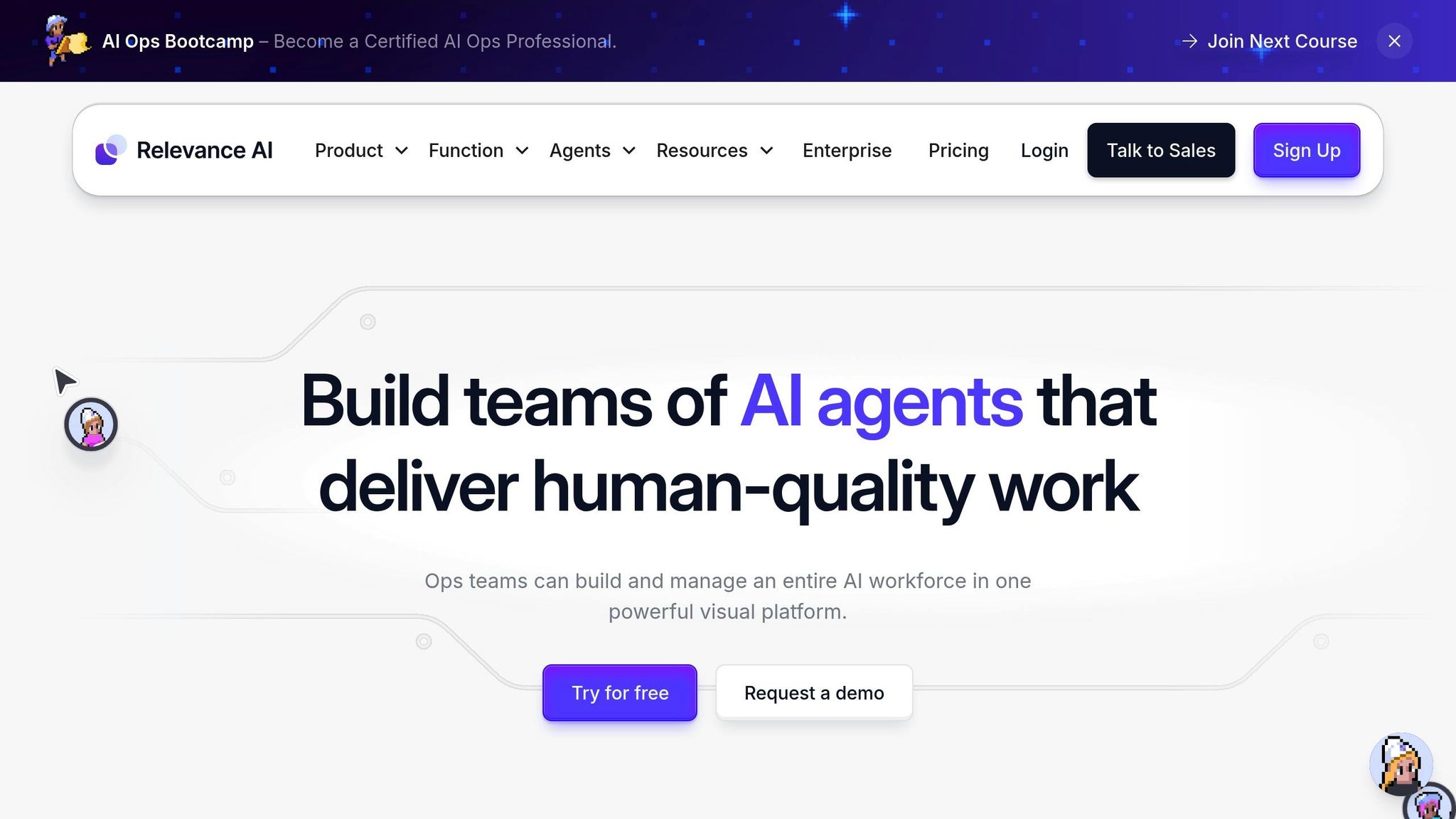
Relevance AI markets itself as a tool for creating AI-driven workflows, but it offers limited publicly available information regarding its capabilities in AI monitoring and management. Details about its governance practices, adherence to regulatory standards, and commitment to ethical AI are notably sparse.
The platform does not appear to provide comprehensive insights into AI performance or operational transparency. For businesses that prioritize clear accountability and detailed reporting in their AI operations, this lack of information could pose challenges. Additionally, there is no specific information available about how Relevance AI supports enterprise-level scalability. Companies looking to expand AI monitoring across various departments or seeking robust reporting tools may need to engage directly with Relevance AI to better understand how it addresses the demands of larger-scale AI deployments and oversight.
This section highlights the core strengths and potential trade-offs of each platform, based on the detailed evaluations provided earlier. Each platform brings its own advantages and limitations when it comes to AI monitoring and governance.
Prompts.ai stands out for its wide range of AI models and robust cost management. Its integrated FinOps layer offers real-time insights into token usage, allowing finance teams to monitor and control AI spending across various business operations effectively.
UiPath is well-known for its advanced RPA framework and broad partner ecosystem. While its automation capabilities are strong, its built-in AI features aren't as comprehensive as those found in platforms specifically designed for AI orchestration.
ServiceNow leverages its expertise in IT workflows to deliver AI governance tools. This makes it a natural fit for organizations already using its IT operations tools. However, its AI management capabilities are primarily focused on IT processes, which may limit its appeal to businesses seeking broader AI governance.
Automation Anywhere offers a cloud-native platform designed for quick automation deployment. However, for businesses with significant AI needs, its AI model management tools might not be as specialized as those provided by platforms dedicated to AI orchestration.
Relevance AI positions itself as a tool for managing AI workflows. However, limited public information about its governance practices and scalability means businesses may need to conduct direct evaluations to determine if it meets their specific needs for accountability and reporting.
Here’s a summary of each platform’s key attributes:
| Platform | Key Strengths | Primary Considerations | Best For |
|---|---|---|---|
| Prompts.ai | 35+ AI models, real-time FinOps visibility, cost efficiency | Centralized AI orchestration with strong cost controls | Organizations prioritizing model diversity and cost management |
| UiPath | Mature RPA ecosystem, security, extensive partnerships | Limited native AI integration | Large enterprises with established automation workflows |
| ServiceNow | Seamless IT workflow integration, familiar interface for IT teams | Focused primarily on IT processes | Companies already using ServiceNow infrastructure |
| Automation Anywhere | Cloud-native design, rapid deployment | Less specialized AI model management features | Businesses needing quick automation scaling |
| Relevance AI | AI workflow capabilities | Limited transparency and publicly available information | Organizations open to conducting direct evaluations |
Selecting the right AI management platform depends on aligning these strengths with your organization’s specific goals and priorities.
Choosing the right AI management platform begins with identifying your organization's primary needs. For U.S. businesses focused on financial oversight, Prompts.ai's FinOps layer offers real-time tracking of every token, ensuring spending aligns with usage. Its pay-as-you-go TOKN credit system eliminates recurring fees, delivering the kind of predictable, usage-based pricing that CFOs often prefer over traditional per-seat licensing models.
Compliance is another critical factor. With enterprise-grade governance tools and detailed audit trails, Prompts.ai provides the documentation and control compliance teams demand. Its unified interface for managing over 35 AI models simplifies oversight, reducing the complexity of managing multiple tools.
For organizations already tied to specific infrastructures, the choice becomes more straightforward. Businesses using ServiceNow gain seamless integration advantages, while those focused on traditional RPA workflows might lean toward platforms like UiPath for established automation capabilities. Prompts.ai, however, stands out by incorporating advanced AI management without adding unnecessary complexity. This distinction highlights the financial and operational benefits of its approach.
In a fast-evolving AI landscape, Prompts.ai ensures competitiveness by quickly integrating emerging models like GPT-5, Grok-4, and Flux Pro.
For organizations seeking a comprehensive solution that combines cost efficiency, strict compliance, and broad model support, Prompts.ai delivers. By addressing the challenges of fragmented systems, compliance demands, and financial management, its governance and interoperability features align seamlessly with enterprise AI strategies. For those with legacy system dependencies, the decision may involve balancing integration benefits against the specialized AI management capabilities they would otherwise need to develop or acquire.
Prompts.ai makes navigating complex regulatory frameworks like SOC 2 and GDPR more straightforward. With tools designed for secure data handling, detailed audit trails, and customizable access controls, the platform ensures your AI workflows align with strict compliance standards.
By consolidating AI model management in one place, Prompts.ai enhances transparency and accountability throughout your operations. This approach not only simplifies meeting legal and ethical obligations but also helps you fine-tune your AI systems for better performance.
Prompts.ai takes the hassle out of managing expenses with its pay-as-you-go TOKN credit system, letting businesses pay solely for what they actually use. With a built-in FinOps layer, it offers real-time insights into AI usage, spending, and ROI, giving businesses the tools to monitor budgets and fine-tune costs with ease. This level of clarity empowers smarter financial planning and more efficient resource distribution.
Prompts.ai simplifies scaling and integration by providing interoperable workflows that easily align with your current business tools. Supporting more than 35 large language models, it offers the versatility to meet your unique requirements.
Features such as side-by-side model comparisons and complete control over prompt workflows, outputs, and performance make managing AI-driven processes straightforward. As your business expands, Prompts.ai ensures these processes remain efficient and optimized.


